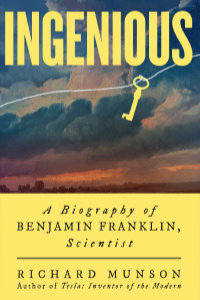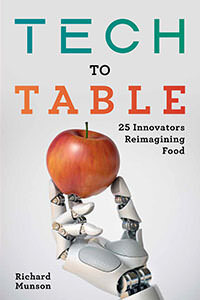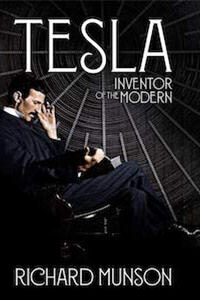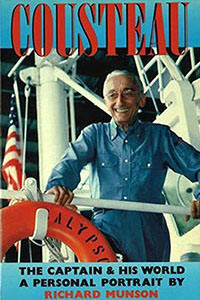Rethinking Eggs and Chickens: Plant-Based Alternatives to Animal Slaughter
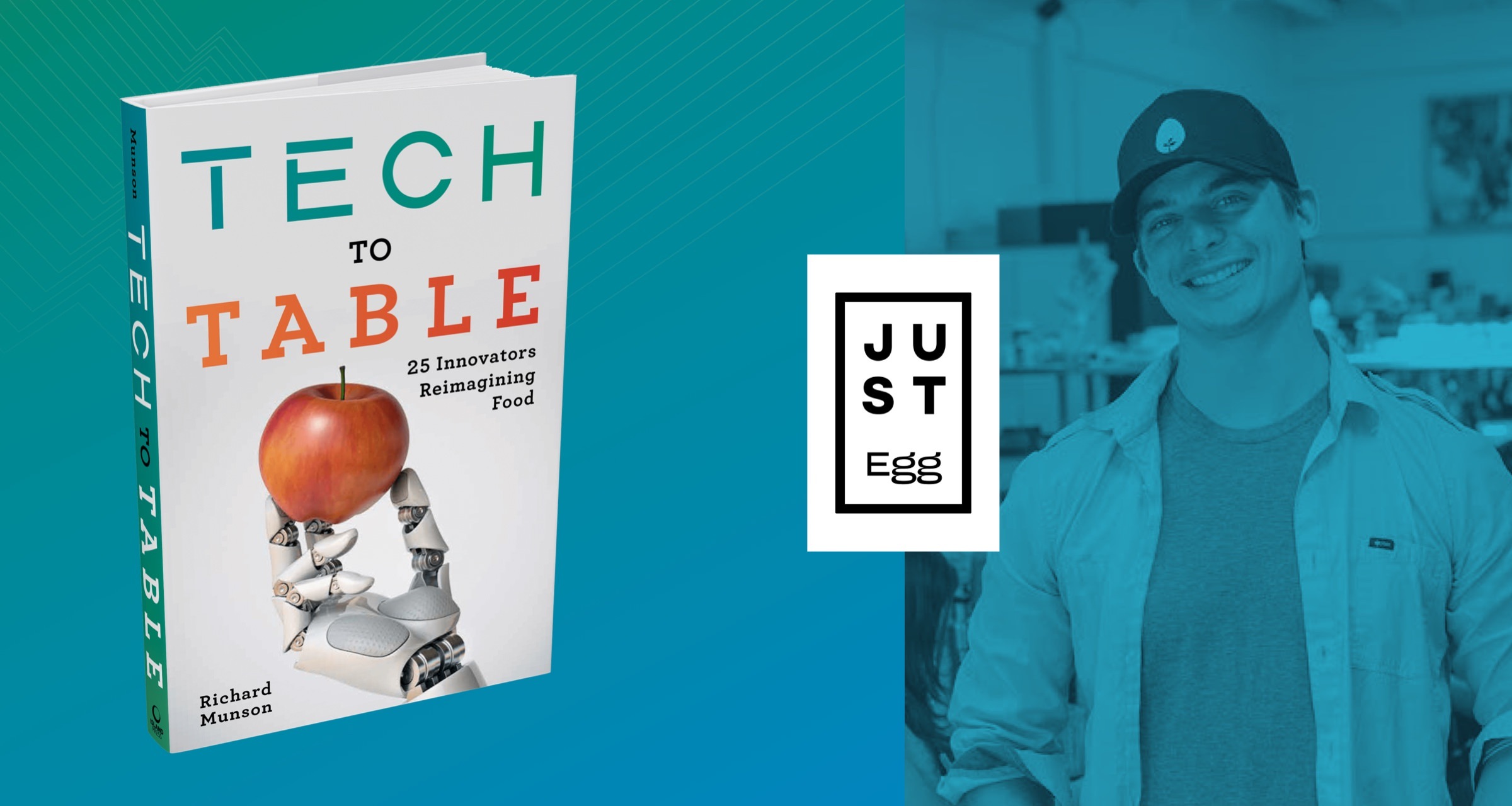
Josh Tetrick’s early life did not hint that he would become an agricultural revolutionary hell bent on destroying the conventional chicken and cattle industries. Born in Birmingham, Alabama, he claims to have enjoyed “a meat-and-potatoes childhood,” and at other times asserts he “was pretty much fed on a steady diet of cinnamon rolls out of vending machines, nachos and cheese from 7-Eleven, Burger King chicken sandwiches, and pretty crappy cafeteria food.” He says he grew up like most Americans, eating “in a way that is not the best for your body, certainly not the best for the planet.”
Tetrick played linebacker on West Virginia University’s football team before heading to Cornell University and then to the University of Michigan Law School. It was there that doctors diagnosed Tetrick with hypertrophic cardiomyopathy, a heart condition that prompted him to abandon sports and become a vegetarian; more importantly, it gave him an appreciation for “life’s fragility” and sparked a full-speed-ahead cockiness. Two years after graduating, in 2010, that health defect caused a near-death experience, prompting Tetrick to ask more fervently, “What would I do with my life if I knew I only had five years to live?” In fact, his phone every morning at 8:30 am flashes the message: “Prepare to die today,” reminding him to make his time count.
Tetrick had held no job longer than one year, worked out of a friend’s studio apartment in Los Angeles, and possessed no background in science, nutrition, or business management. Yet in 2011, at the age of 29, he launched Eat Just Inc., initially called Hampton Creek, to create “healthier, sustainable food that is also affordable and delicious.” The goal was to develop alternatives to conventional animal-based products—ones people would actually eat.
The current food system, Tetrick argues repeatedly, “is failing most people in the world.” Approximately 1.1 billion people “go to bed hungry every night,” another 6.5 billion “just eating crappy food,” and about 2.1 billion from both groups are “being fucked right now” by nutrient deficiencies. The CEO acknowledges the importance of carbohydrates, fats, and vitamins to a nutritious diet, but he focuses on proteins since they contain the nine amino acids essential for human health.
Conventional protein production through animal meats, Tetrick continues, is unsustainable. It confines millions of cattle, pigs, and chickens into cramped spaces, where their pathogen-loaded poop leaches into rivers and lakes and their methane-laden belches accelerate climate change. Farmers plow vast swaths of land—and spread enormous quantities of chemicals—to grow the crops that feed those animals, and then we slaughter them. As the world’s population grows and incomes rise, meat production may double by 2050 to 455 million pounds, and, says Tetrick, “Our planet simply cannot afford to supply the water, fuel, pesticides, and fertilizer that industrialized animal production requires. It can’t afford the polluted water or the biodiversity loss. It can’t afford the moral inconsistencies.”
The entrepreneur decided initially to examine the properties of plant alternatives, noting that more than 300,000 species around the planet had not been analyzed, to find environmentally sound alternatives to animal-based proteins. Believing plants hold the key to making “our cookies or pasta or ice cream or butter or scrambled eggs better,” Tetrick and his team began targeting species with health, sustainability, and deliciousness attributes. What started as individualized analyses quickly became an automated discovery platform.
After producing egg-free mayonnaise, cookie dough, and chocolate-chip cookies, Eat Just focused on finding an alternative to the egg itself, which Tetrick describes as “the most common protein on the planet.” Chickens lay 1.4 trillion (with a “t”) eggs each year, but the industrialized layer industry pollutes the air with methane and the waterways with nitrates and harmful bacteria. Hens live in cramped cages and eat so much of a weight-gaining mixture that their legs collapse. Tetrick claims he’s out “to do it better” and that he’s “building and fighting for a healthier food system.”
Finding a plant-based substitute required a good bit of trial and error. “We tried scrambling the yellow split pea, which kind of just evaporated in the pan,” Tetrick says. “We tried grains like sorghum, which tasted like eating wheat bread, and we tried another grain that gelled in the pan nicely but tasted like tree bark.” He finally settled on the mung bean, a legume grown mostly in Asia that gels and scrambles like an egg when ground into a liquid; to achieve the light yellow of a panned-cooked egg, he added turmeric. Eat Just offers “ready to scramble” liquid eggs as well as frozen varieties ready to pop into skillets, toasters, microwaves, or ovens.
After devising substitutes for eggs, Tetrick confronted the chicken itself, the conventional breeding of which he calls “inhumane and unsustainable … and one of the biggest problems facing humanity today.” Why, he asks, “do we have to cause death in order to create food?” He pauses and then adds: “How can we create chicken meat without killing a chicken?”
The basic technology needed to extract a few animal cells and grow them independently has been used for more than a decade by medical researchers creating advanced drugs and treatments. Although cost rarely has been an issue for these pharmaceutical engineers, the challenge for Eat Just and its cell-based-food competitors has been to devise a cost-effective and ethically defensible medium of liquid nutrients in which meat cells can feed and grow. Put another way, they need to bring cutting-edge science to agriculture.
To develop chicken meat without killing an animal, Eat Just scientists picked up a single feather shed by the barnyard’s best-looking bird, one sporting a healthy comb and nicknamed “Ian.” They extracted a cell from that feather as the basic starter material and placed it in Tetrick’s liquid mix, where it multiplied and became dense.
Having promised “to make the best chicken nuggets ever,” Tetrick claims an out-of-body experience during the first tasting when he and teammates ate cultured chicken chunks while the bright-combed Ian waddled around the table.
Since Tetrick does not think consumers will revolutionize their eating habit, he plans to revolutionize the food industry. “Our theory is that given that human beings have been eating meat for about 2.4 million years, it’s a hard sell to get them to stop eating meat now, especially now that most of humanity is rising up out of poverty,” says the young CEO. “The best way to deal with the meat challenge is just to make better meat without all the issues associated with killing animals today.” Referring to his products as “clean meats,” he argues that producing plant- or cell-based meats is more sanitary—leading to fewer recalls or outbreaks of e coli—than killing animals in fecal-invested slaughterhouses.
Tetrick claims to be “changing the food system to benefit consumers and the environment,” but he admits it takes time to advance new technologies and transform massive industries. Of course, the hard-charging and ever-confident entrepreneur expects that time will be limited, that his chicken products will be available in small markets by 2021 and on a large scale in multiple countries after 2025. What gives him hope, Tetrick concludes, “is there’s such a fire of entrepreneurship right now.”
More on Josh Tetrick, Eat Just, and alternative proteins can be found in Tech to Table: 25 Innovators Reimagining Food.

